What Will Stop Russia from Invading Ukraine Again: Opinion of Ukrainians
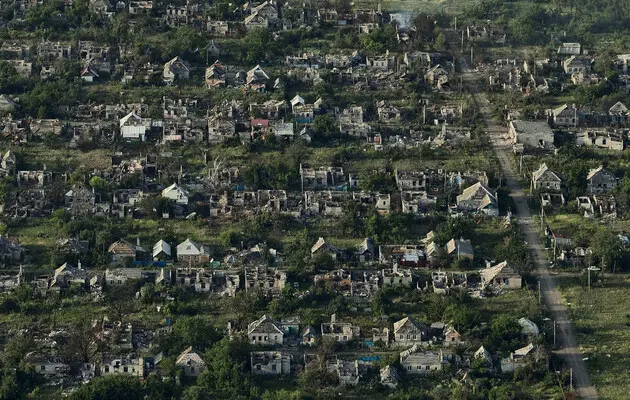
“They were shooting at Trump, but they hurt Biden.”
This phrase has been repeated more than once over the past week. After the assassination attempt on Donald Trump, the likelihood of the Republican Party candidate winning the presidential election has grown. As Neue Zürcher Zeitung notes, bookmakers believe that Trump’s chances of being re-elected have exceeded 60%. However, it remains to be seen how Joe Biden’s decision to withdraw from the presidential race and the emergence of Kamala Harris as the Democratic candidate will affect his prospects. But until recently, Trump maintained a slight lead over the current vice president within the statistical margin of error.
In the Office of the President of Ukraine, where the Biden administration’s policy toward Ukraine and Russia is viewed critically, confidence in Trump’s victory in the presidential election has strengthened after July 13. But after Thomas Matthew Crooks made his shot, so has uncertainty about Washington’s further policy on the Ukrainian issue — U.S. military and financial assistance to our country, as well as support for Ukraine’s NATO membership.
The Biden administration is indecisive. Nevertheless, the White House gave its consent to the statement in the Washington Summit declaration on “an irreversible path to full Euro-Atlantic integration, including NATO membership,” allocated additional air defense funds, initiated the creation of a NATO mission to coordinate military assistance to Ukraine and approved the Alliance’s commitment to provide Kyiv with €40 billion in military aid in 2025.
But the absence of an invitation to Ukraine to join the defense club is a political signal to Putin that the Kremlin has veto power over the admission of new NATO members; a demonstration that Kyiv’s membership in the alliance could be a bargaining chip in future peace talks. NATO’s decision not to extend an invitation to Ukraine showed the weakness of the organization, whose members are afraid to take responsibility for fear of a direct armed clash with Russia and nuclear war.
Therefore, no matter how impressive statements written down in summit declarations are, the prospect of membership is not getting any closer for Kyiv. And this affects not only our security, but also our future economic development: how many investors will want to invest in a country that could be attacked by Russia again at any moment? How many Ukrainian citizens will want to return to a country forced to live under the constant threat of new aggression?
“What will happen to Ukraine if it is not admitted to NATO in the next few years?” we asked Ukrainians within the framework of the sociological survey conducted on behalf of ZN.UA by the Razumkov Centre on June 20–28. 19.8% of respondents believe that in this case the future of Ukraine is a gray buffer zone between Russia and the West (this scenario is more widely held in the center of the country — 21.3% and in the east — 26.5%). Another 17.2% believe that Ukraine will be a neutral country (27.7% in the south of Ukraine think so).
Every eleventh Ukrainian is pessimistic: without NATO membership, our country will gradually enter Russia’s zone of influence. At the same time, 14.7% of Ukrainians in the south of Ukraine are most confident that such a scenario will come to pass.
Nevertheless, 39.8% of respondents remain optimistic, as they believe that Ukraine will continue on its path to NATO and join it in the more distant future. It is noteworthy that such hopes are felt more in the west of Ukraine (51.2%) than in the east (27.8%).
But is there any reason to expect that our country will join NATO? Alas, if even under Biden the hopes for Kyiv’s admission to the defense club were overly optimistic, the prospects for our country’s membership in the Alliance look even sadder if Trump returns to the White House.
Leaks from the Republican candidate’s entourage about his plans for NATO and Ukraine, his choice of Senator James David Vance as his vice presidential candidate suggest that under Trump, our country will certainly not set foot on the “bridge” to the Alliance’s “open door.” Washington’s financial and military assistance to Kyiv is also cast into doubt: the US president has enough tools, if not to block the support, then to delay it in every possible way.
Trump has repeatedly claimed that if he becomes president, he could end the war in Ukraine in 24 hours. According to Politico, he is mulling a plan under which NATO could abandon its eastward expansion and start negotiations with Putin on how much of the occupied Ukrainian territory Moscow can keep. Earlier Bloomberg wrote that Trump is going to force Ukraine to negotiate with Moscow under the threat of cutting off military aid, and make Russia sit at the negotiating table by threatening to increase supplies to Kyiv.
Trump is a joker, an unpredictable player. It is possible that many of Trump’s statements stem from an acute internal political struggle in the United States, and if he wins, he will take a more favorable stance on supporting Ukraine. In any case, former British Prime Minister Boris Johnson said after meeting with Trump at the Republican Party convention that he was convinced that Trump would support Ukraine if elected president. Johnson did not elaborate what this conviction was based on.
Having said that, there is a high probability that Ukraine will still have to build its security outside the NATO “shield” for many years to come. It would not be fair to say that this scenario was unexpected for Kyiv.
The Ukrainian leadership is betting on the country’s membership in the Alliance. However, since the beginning of last year, the Ukrainian authorities have also been actively working on implementing the “porcupine strategy” — bolstering Ukraine’s defense capabilities. The key element of this strategy is the security cooperation agreements that Kyiv is concluding at the bilateral and multilateral levels. To date, 25 such documents have been signed.
These agreements will not protect us from new Russian aggression in the future. But they increase the price of an invasion for the aggressor. However, as it follows from the data of the opinion poll, Ukrainian citizens are quite skeptical about this “shield.”
Only 23.2% of Ukrainians expect that the set of bilateral security agreements will stop the Kremlin from launching a new war against Ukraine. The southern part of the country (17.7%) and the west (19.6%) believe in the effectiveness of this instrument the least, while the center (27.1%) believes in it the most.
Even fewer people — 22% — think that agreements on “security guarantees” with the G7 countries will become such a deterrent. Among the respondents there were also those who believe in an agreement on “security guarantees” with Russia: there are 4.3% of them. (But while in the east and south of Ukraine 7.5 and 6.1% of respondents are ready to believe Russia, respectively, in the west only 1.9% of respondents hold the same opinion). Slightly more — 5.4% — are confident in the validity of a similar agreement with China. (And this “guarantor” has more trust in the east and south — 7.8 and 6.2%, respectively, and less in the west and center of Ukraine — 3.7%).
At the same time, 23.5% of Ukrainians are inclined to believe that nothing will prevent Russia from launching a second attack on Ukraine. (For instance, in the west of the country, 34% of respondents are sure of this, compared to 18% in the center.) Every third respondent is sure that the barrier to a new invasion will be reliance on the country’s own powerful economy, strong army, uncorrupted authorities and intellectual strengthening of the leadership.
But every second Ukrainian respondent believes that only NATO membership can keep Russia from attacking Ukraine again a few years after the peace agreement is signed. (The “NATO shield’ is the least convincing for the south of Ukraine — 34.1% of respondents support it — while in the east 43.6% rely on this option; in the west and center, this indicator stands at 54.6% and 54.1%.) At the same time, those aged 60 and more are traditionally skeptical of the Alliance: only 46.6% of the elderly believe in NATO’s deterrence capabilities. In turn, Ukrainians aged 18–29 and 30–39 believe in the strength of the Alliance’s “club card” most of all — 54.8% and 52.2%, respectively.
These results of the opinion poll demonstrate that Ukrainian citizens remain committed to the country’s NATO accession. Therefore, if someone in the West or in Ukraine believes that Kyiv’s rejection of the Euro-Atlantic integration policy will go painlessly for the Ukrainian authorities, it is an illusion: the Office of the President, the government and the parliament will experience strong public pressure, since it is in NATO that Ukrainians see a guarantee of lasting peace and security.
The poll was conducted by the sociological service of the Razumkov Centre upon request of ZN.UA from June 20 to 28, 2024. 2,027 respondents aged 18 years and older were polled. The theoretical sampling error does not exceed 2.3%.
Read this article in Ukrainian and russian.
Please select it with the mouse and press Ctrl+Enter or Submit a bug











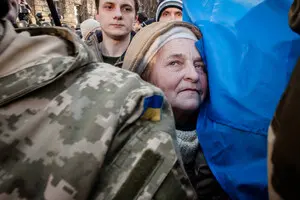
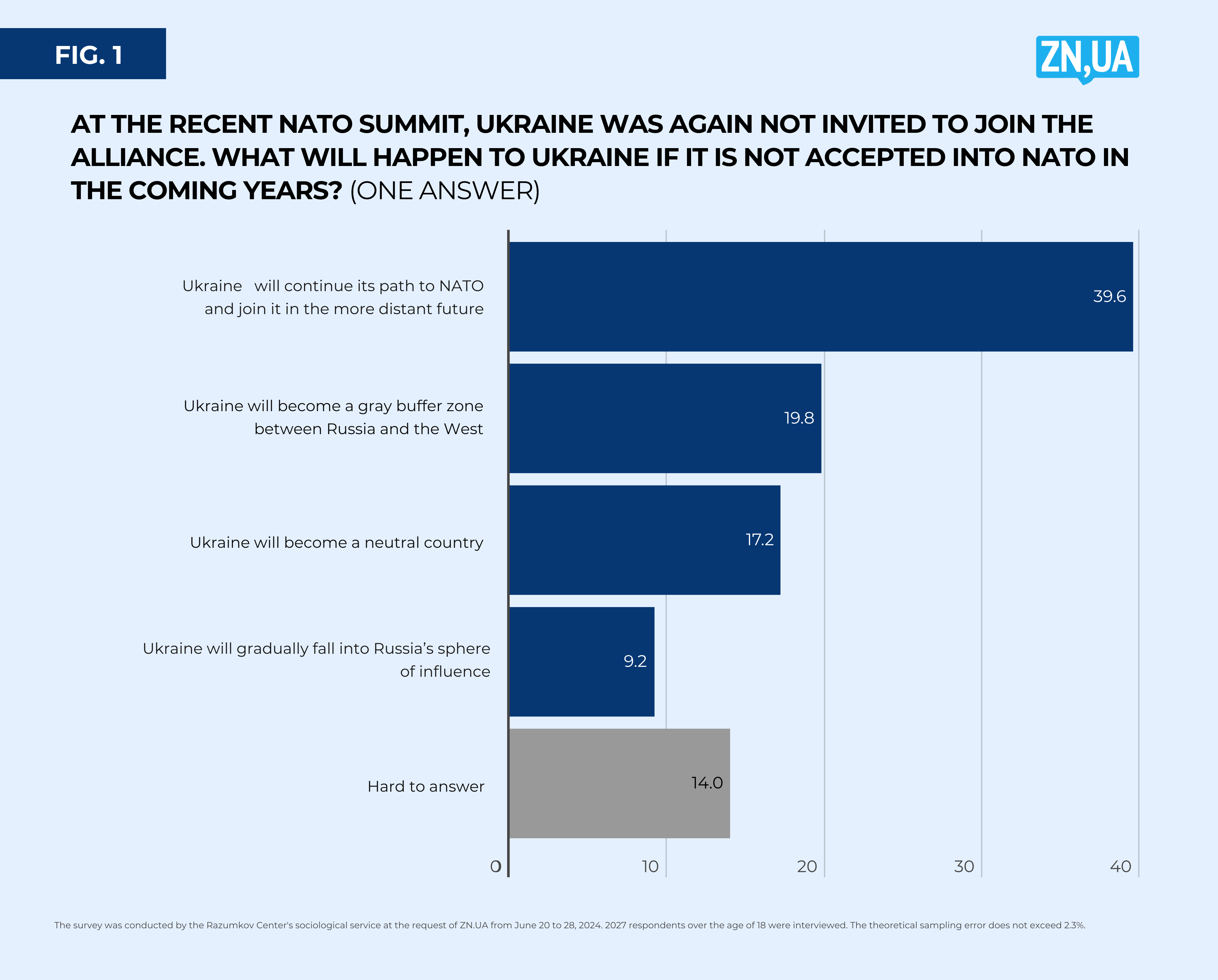
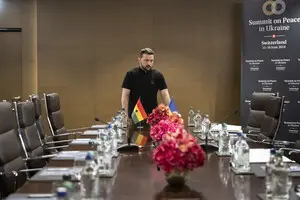
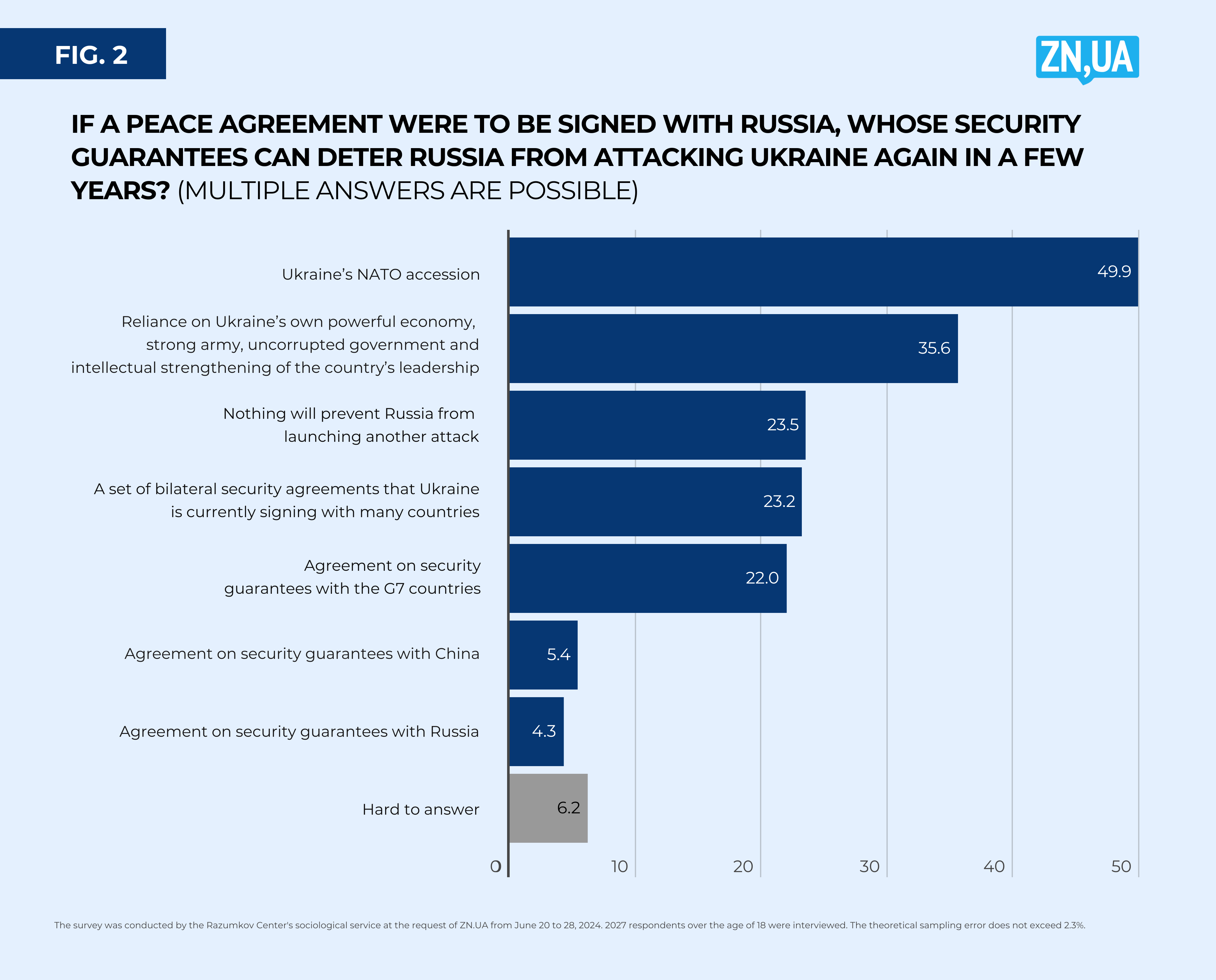
 Login with Google
Login with Google